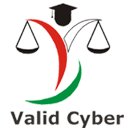
Income Tax Return
An Income Tax Return (ITR) is a form primarily used for filing details about your income and the applicable tax to the Income Tax Department of India. The Indian income tax laws state that the IT return should be filed by every individual and business earning an income. It assists in declaring taxable income, tax liability, and tax deductions claims, if any.
It is mandatory for Firms or corporations, Hindu Undivided Families (HUFs), and self-employed or salaried individuals to file income tax returns before the due date otherwise, a penalty will be levied for late filing
What is Income Tax Return Filing
ITR filing is the process through which a taxpayer must record his total income earned during the fiscal year. Individuals can file their taxes through the Income Tax Department's official portal. It has been notified in seven different forms.
Types of ITRs
There are nearly nine different sorts of ITR forms available for a taxpayer to use while filing his taxes. Individuals must, however, use only the following forms for filing returns, according to the Central Board of Direct Taxes in India-
ITR 1 or Sahaj
It should be used by individuals earning an annual income of less than Rs 50 lakh through salary/pension and from only 1 house property
ITR 2
The ITR-2 Form is a type of ITR form used by individuals who have earned money from the sale of assets or property. This form is also beneficial for people who earn money in countries other than India. Individuals or Hindu Undivided Families (HUF) can usually use this form to file their ITR.
ITR 2A
The ITR-2A form is a new income tax return form that was introduced in the 2015-16 tax year. A Hindu Undivided Family (HUF) or an individual taxpayer can utilize this form.
ITR 3
The ITR-3 Form is useful for an individual taxpayer or a Hindu Undivided Family who is a partner in a firm but does not conduct any business via the firm. This also applies to those who do not make any money from the firm's operations.
ITR-4 or Sugam
This sort of ITR form is useful for persons who own a business or earn a living through a vocation. This form is appropriate to all types of businesses, undertakings, or professions, with no income restriction.
ITR-4S
The ITR-4S form could be used to file income tax returns by any person or Hindu Undivided Family (HUF).
ITR 5
The ITR-5 form is exclusively used to file income tax returns by the Firms, Local authorities, Co-operative societies, Artificial Judicial persons, Body of individuals.
ITR 6
Except for firms or organizations that claim tax exemption under Section 11, all companies utilize the ITR-6 form. Organizations that can claim tax exemptions under Section 11 are those whose income is derived from property utilized for religious or charitable purposes. This particular income tax return form can only be filed online.
ITR 7
This form is required to be used by entities claiming an exemption as colleges, universities, scientific research institutions, religious or charitable trusts, political parties, etc
Who Should File Income Tax Returns
Assessee with a total income of Rs. 5 lakhs or more
Individual/HUF resident with assets outside of India
An Assessee is required to file returns under Section 139 (4B) (ITR 7)
The assessee must provide the assessing officer with a notice under Section 11(2) (a)
A person who claims relief or deductions under sections 90 or 90A
A person who is a resident and has signing authority over any account situated outside of India
Every business
An assessee who is obliged by the Act to provide an audit report stated in sections 10(23C) (IV), 10(23C) (v), 10(23C) (VI), 10(23C) (via), 10A, 12A (1) (b), 44AB, 80IA, 80IB, 80IC, 80ID, 80JJAA, 80LA, 92E, or 115JB.,
AOP, BOI, Local Authority (ITR 5), Artificial Juridical Person, or Cooperative Society that does not fall under the terms of Section 44AB.
